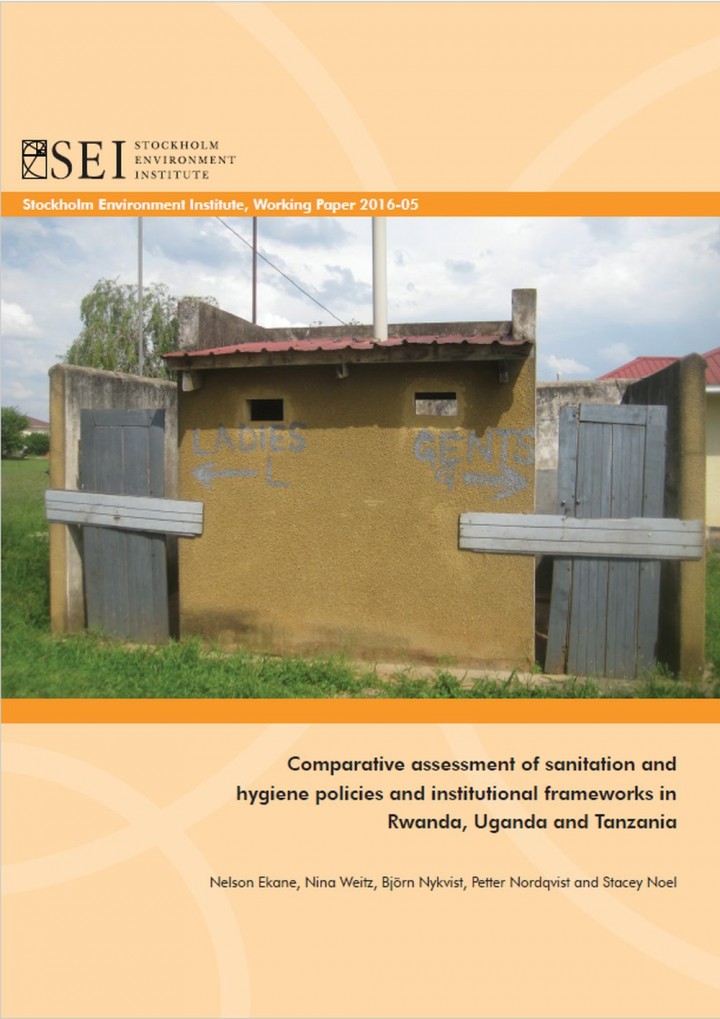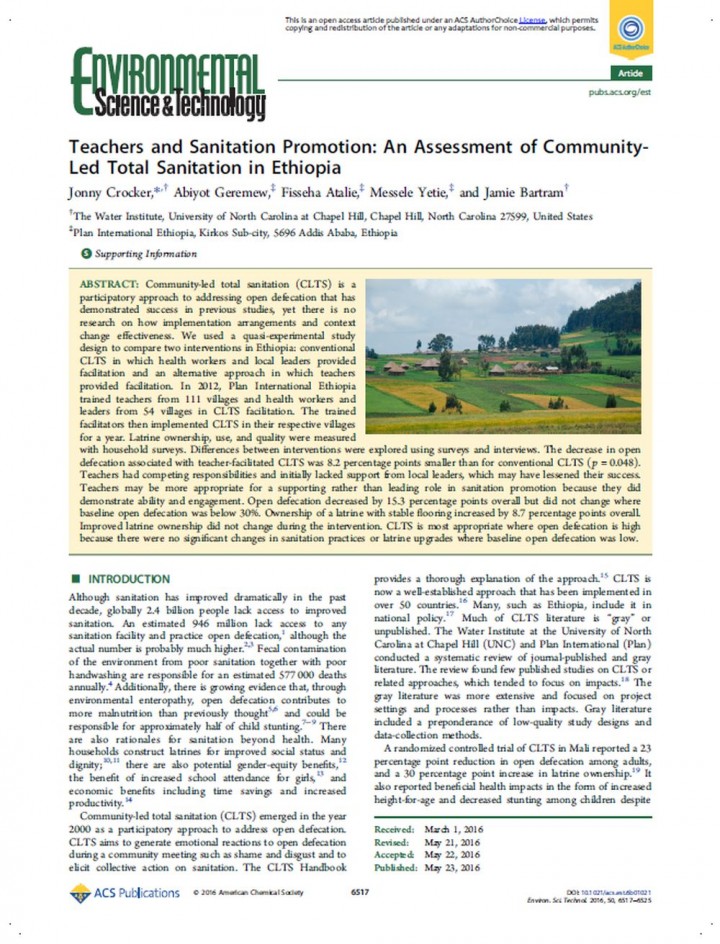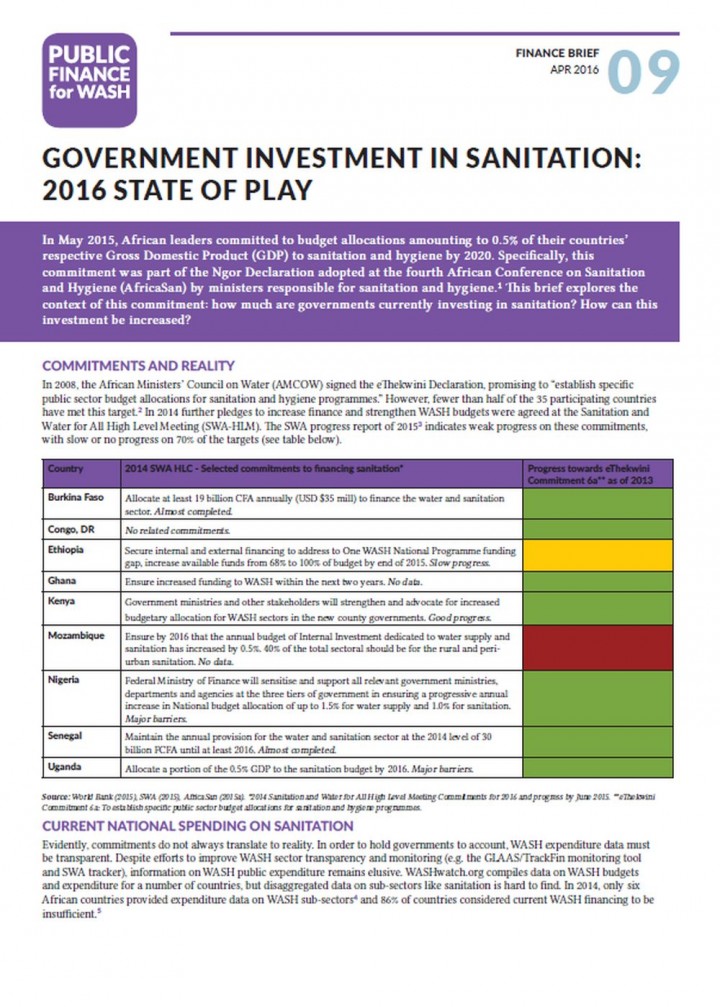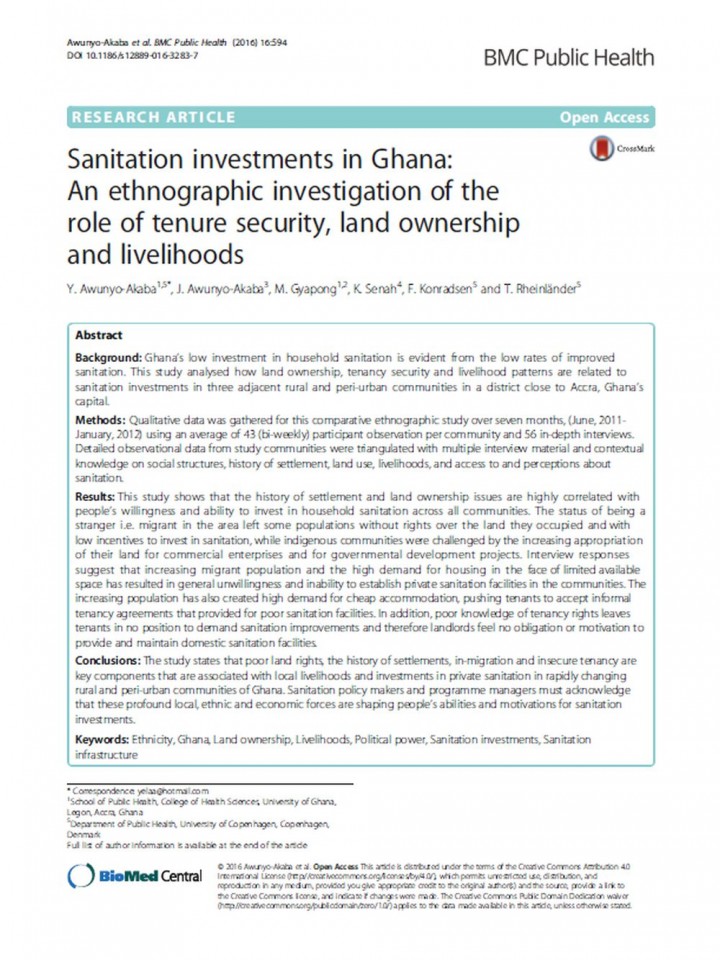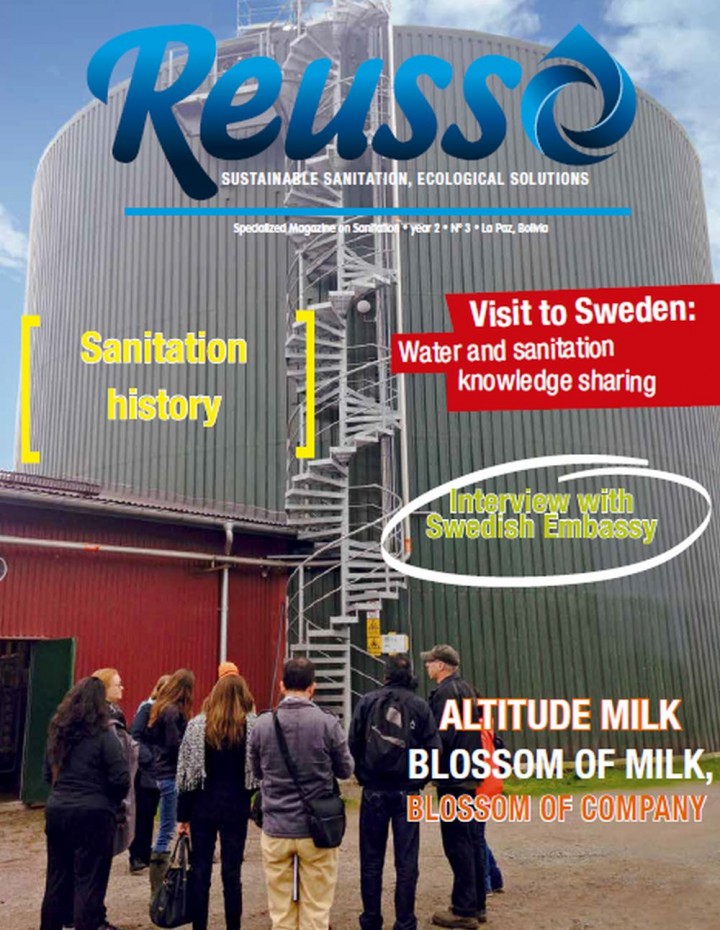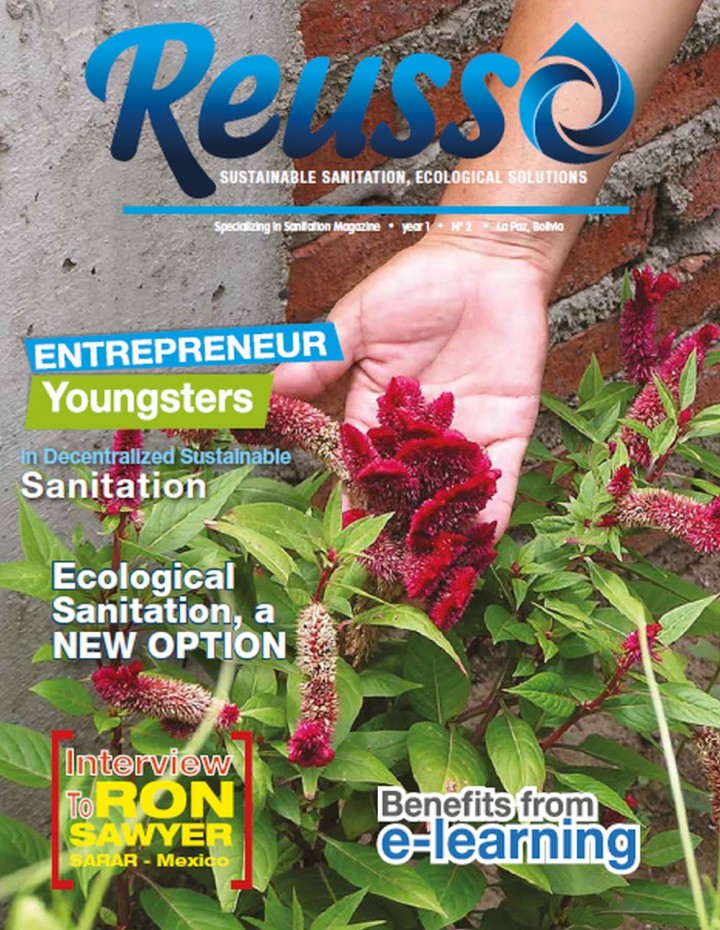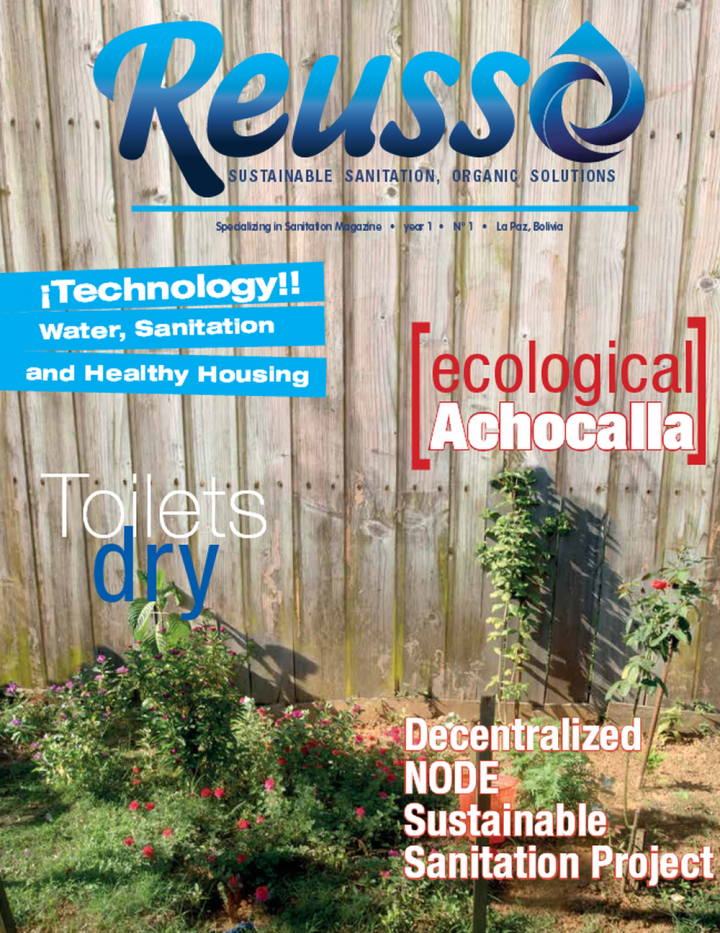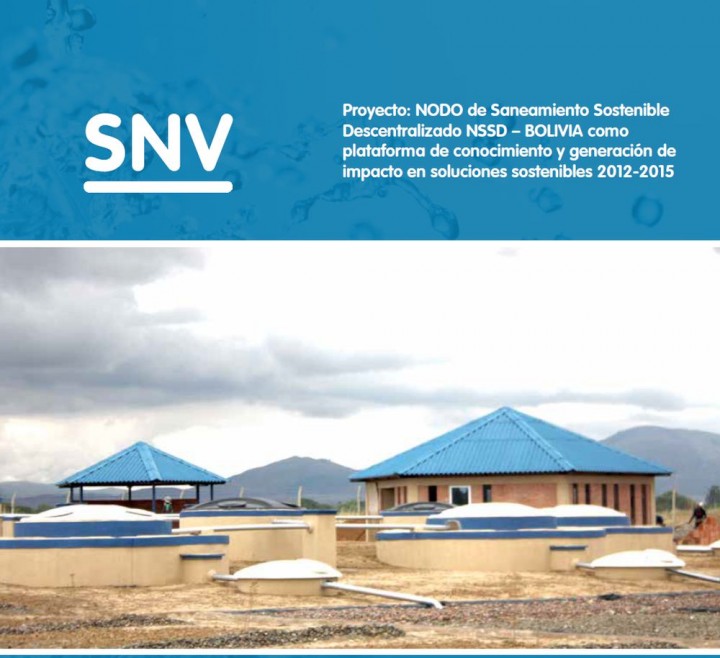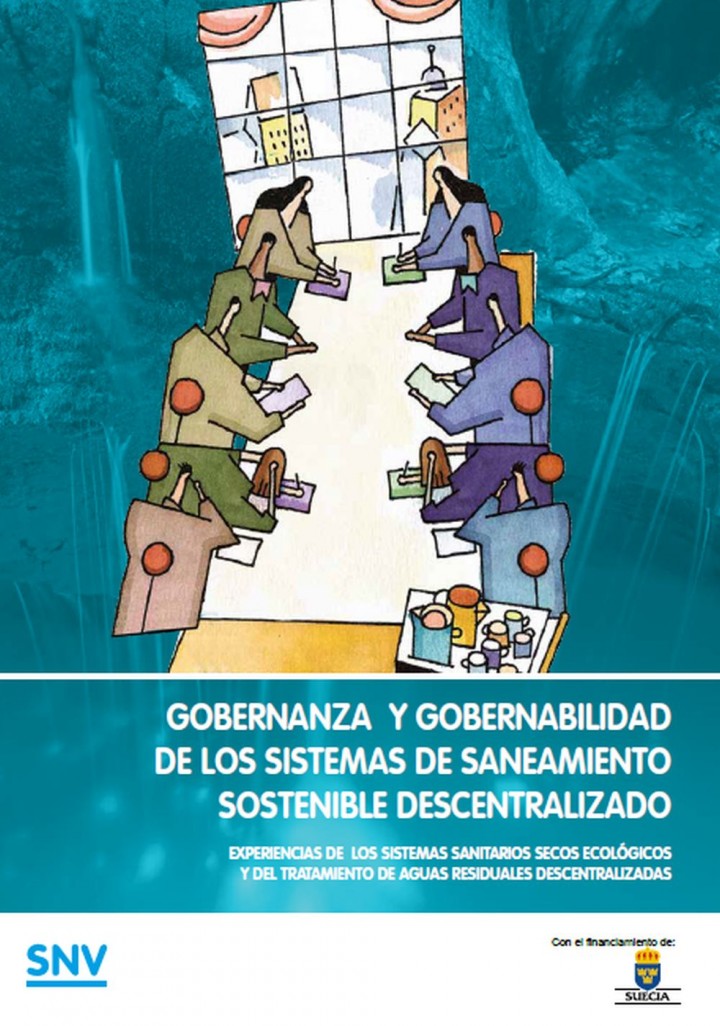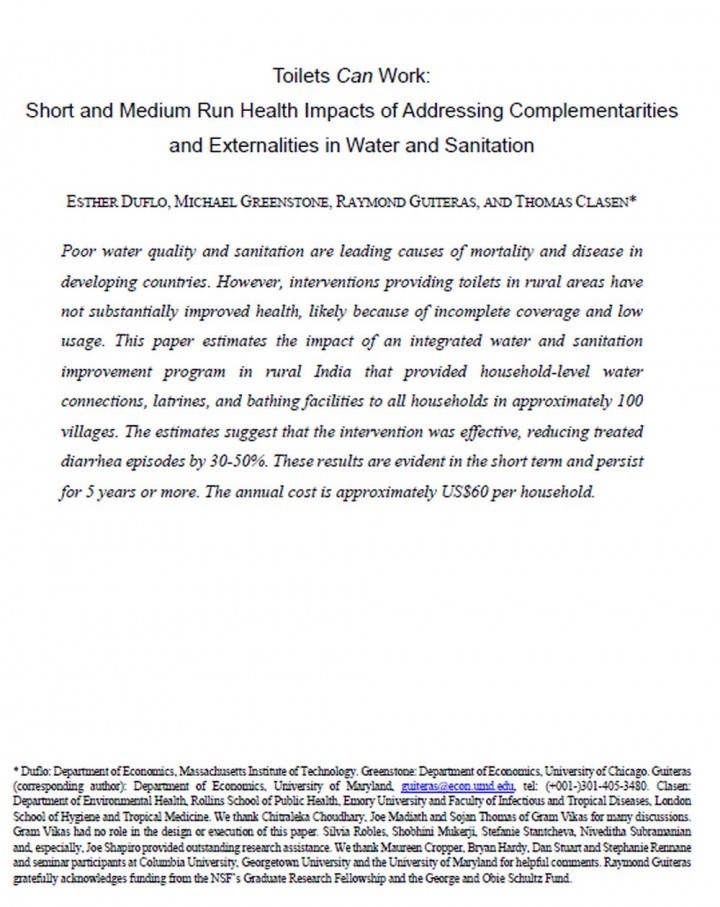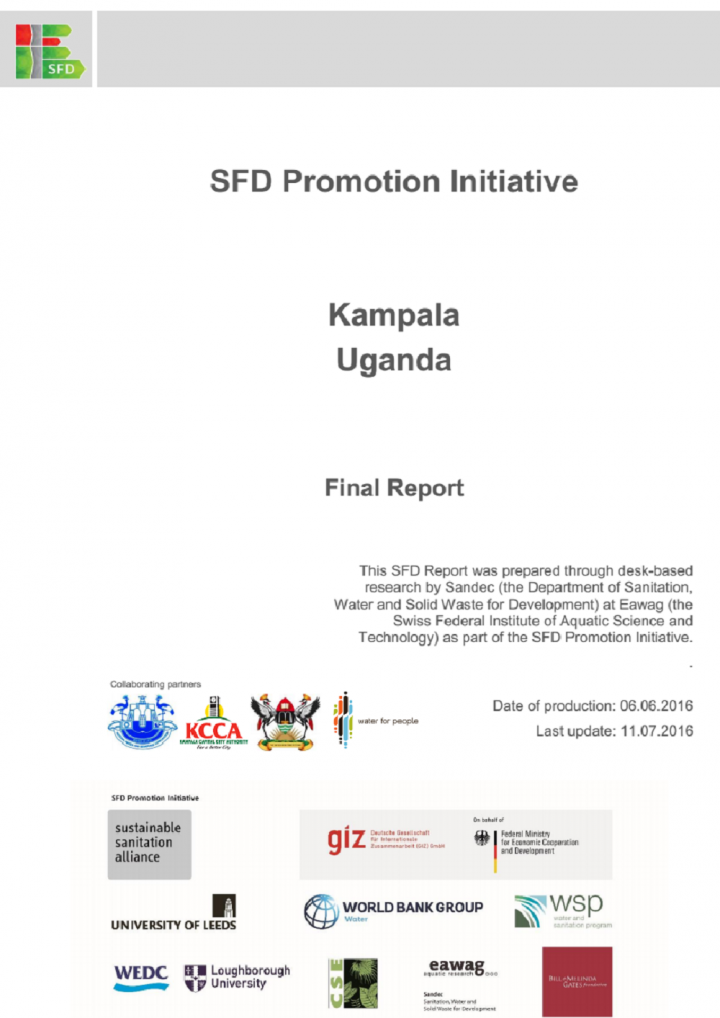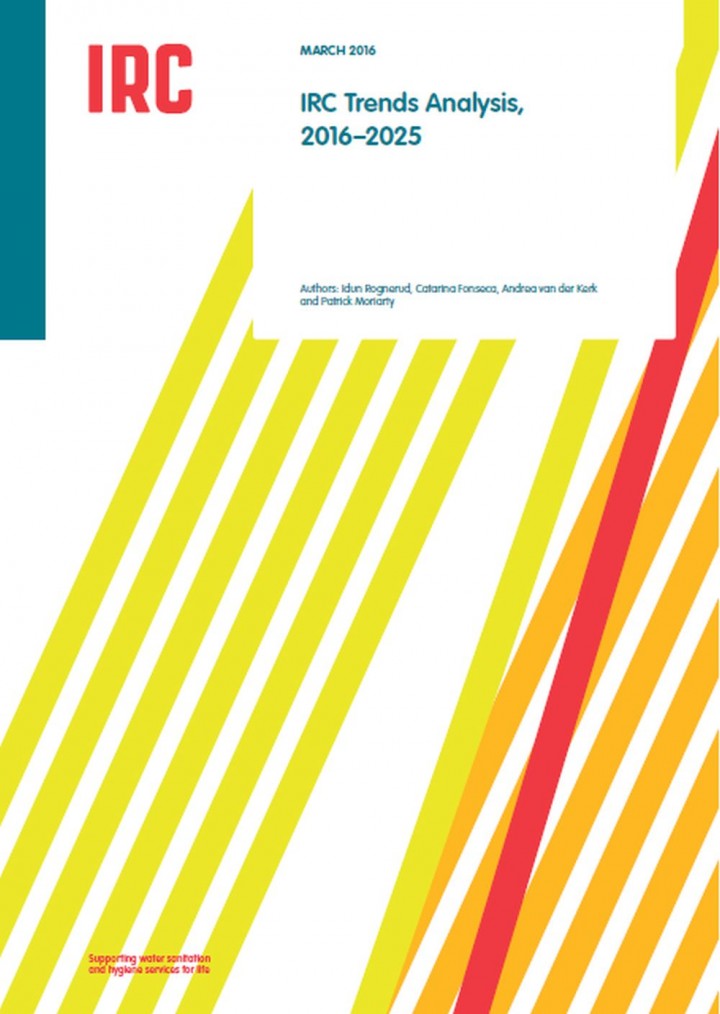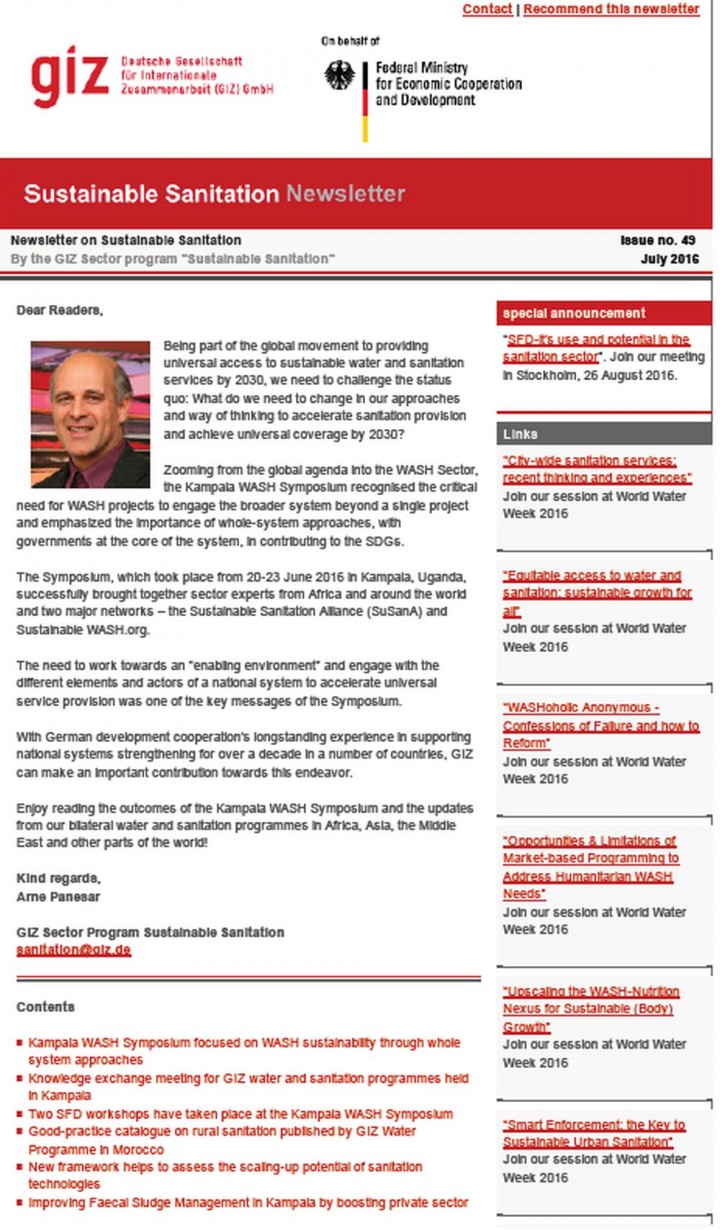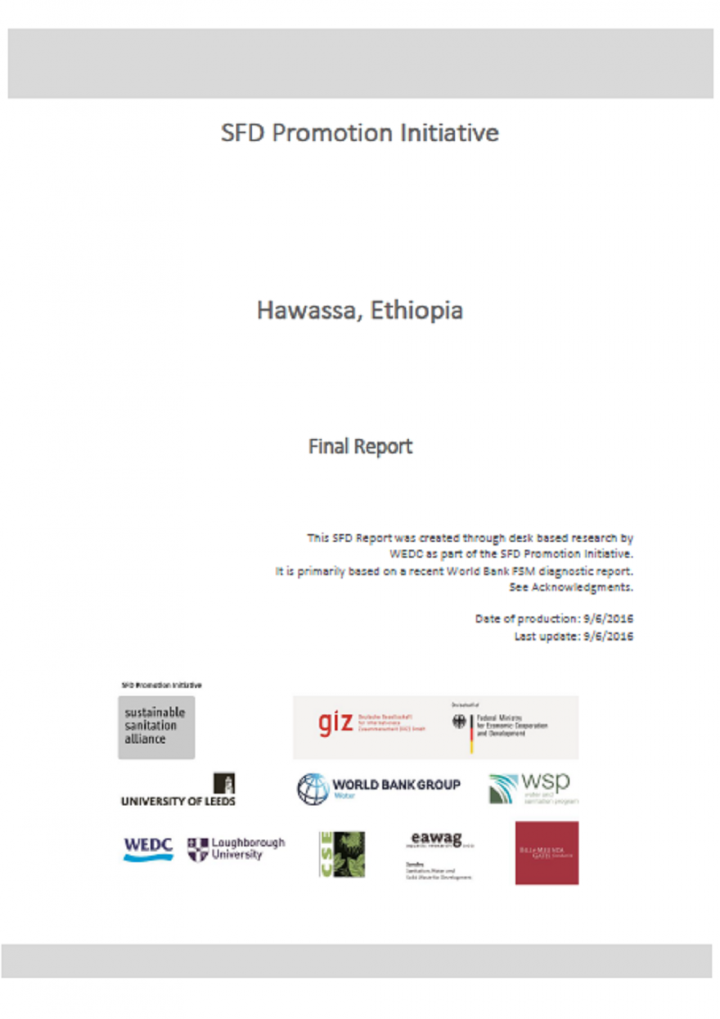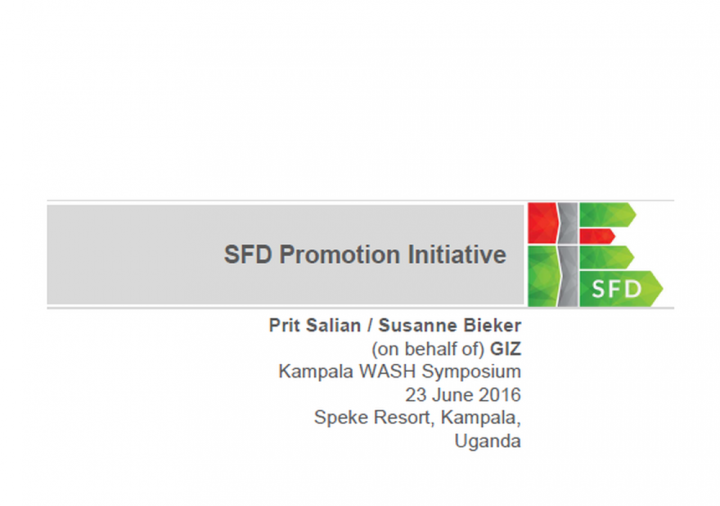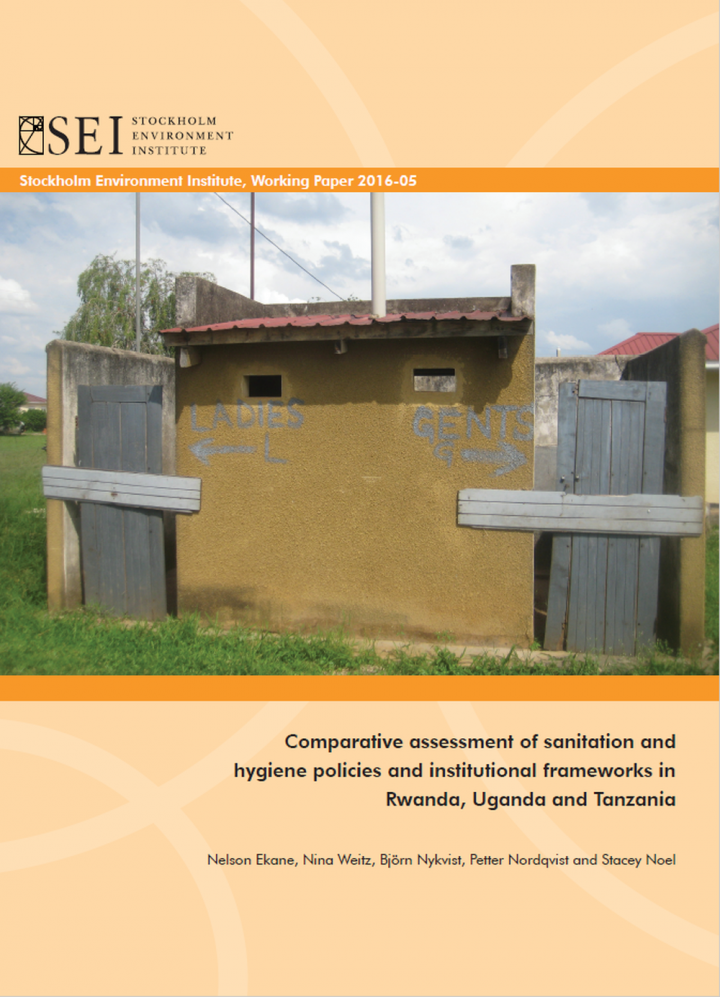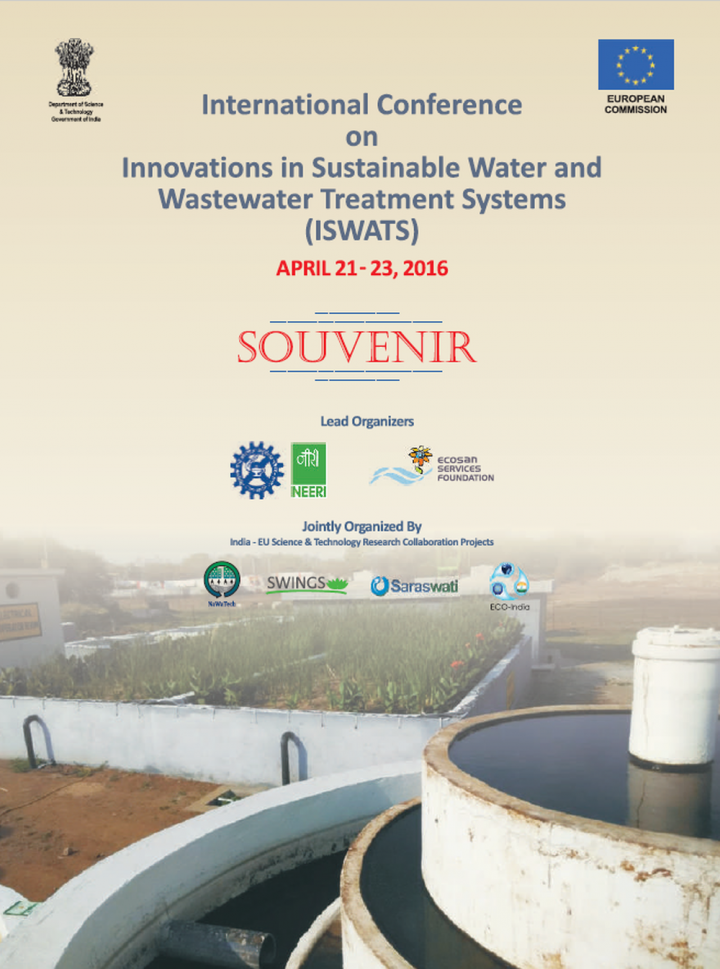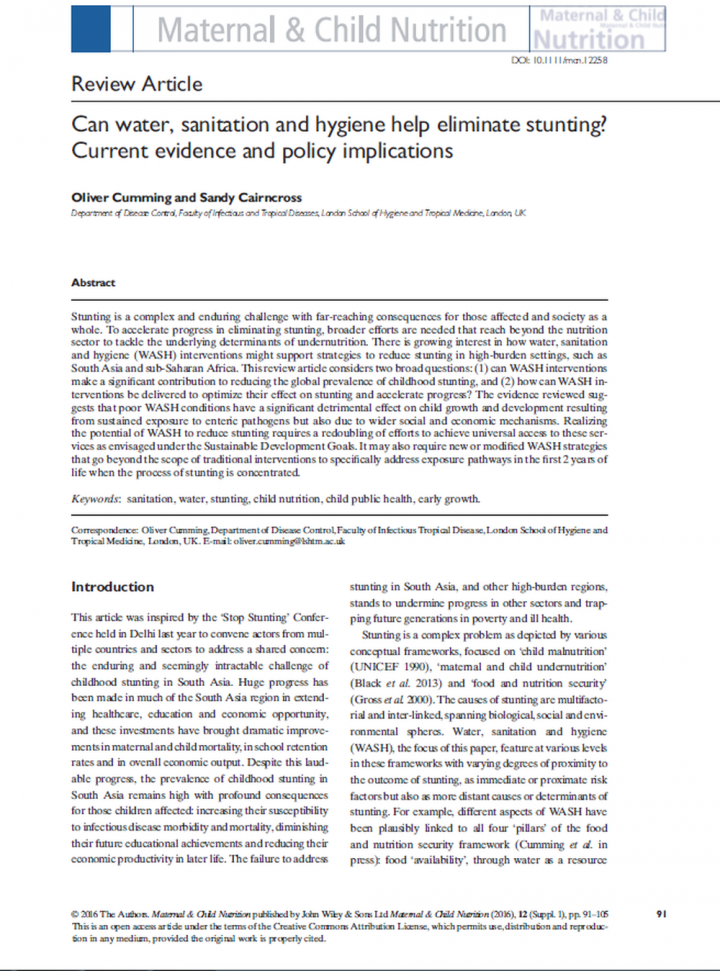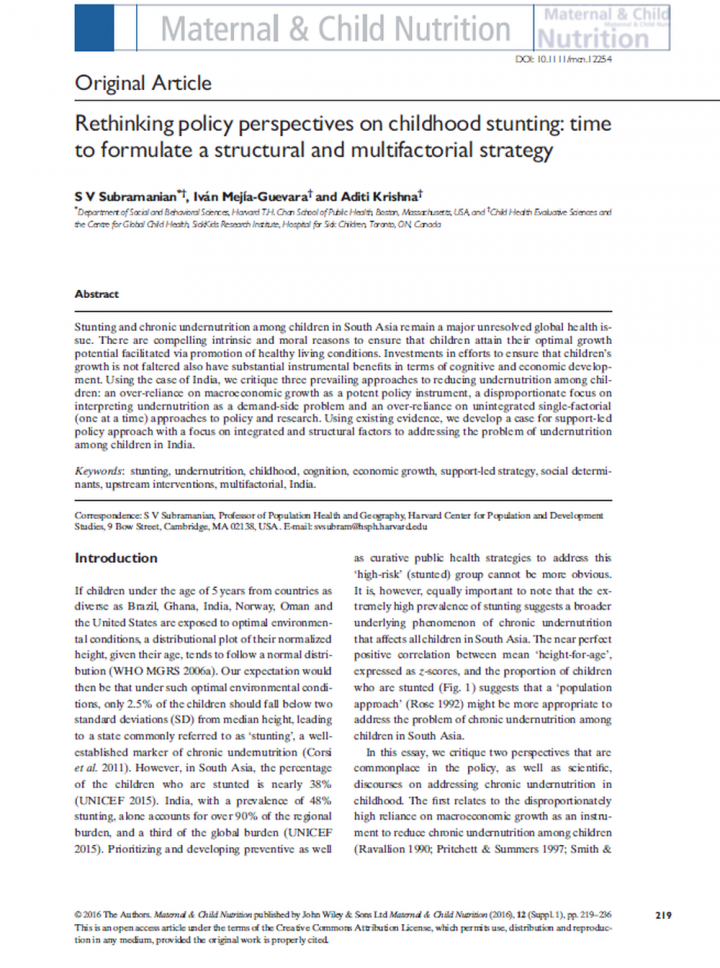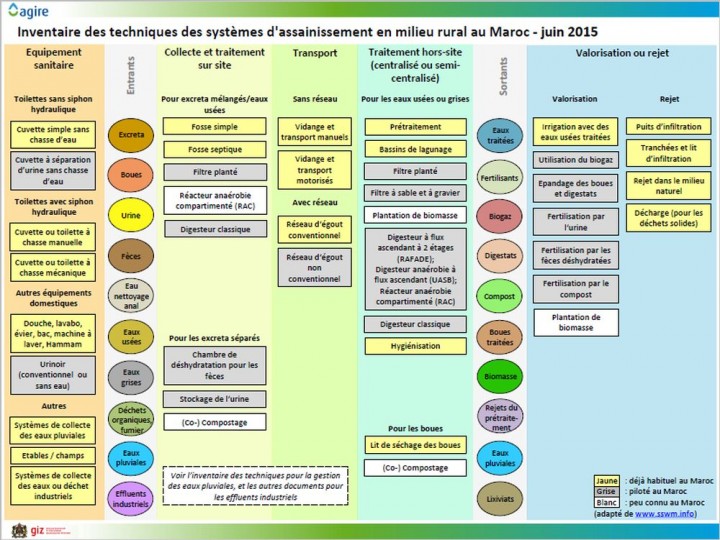Ekane, N. et al. (2016) Comparative assessment of sanitation and hygiene policies and institutional frameworks in Rwanda, Uganda and Tanzania
Policies are considered critical for creating an enabling environment for improving access to sanitation and hygiene services. There are, however, certain requirements that policies must meet for them to be coherent and supportive. This paper presents a comparative assessment of […]
Crocker, J. et al. (2016) Teachers and sanitation promotion An assessment of community- led total sanitation in Ethiopia
Community-led total sanitation (CLTS) is a participatory approach to addressing open defecation that has demonstrated success in previous studies, yet there is no research on how implementation arrangements and context change effectiveness. We used a quasi-experimental study design to compare two interventions in Ethiopia: conventional CLTS in which health workers and local leaders provided facilitation and an alternative approach in which teachers provided facilitation. In […]
Rognerud, I., Fonseca, C. (2016) Government investment in sanitation 2016 state of play
In May 2015, African leaders committed to budget allocations amounting to 0.5% of their countries’ respective Gross Domestic Product (GDP) to sanitation and hygiene by 2020. Specifically, this commitment was part of the Ngor Declaration adopted at the fourth African Conference on Sanitation and Hygiene (AfricaSan) by ministers responsible for sanitation and hygiene.1 This brief explores the context of this commitment: how much are governments […]
Awunyo-Akaba, Y. et al. (2016) Sanitation investments in Ghana An ethnographic investigation of the role of tenure security, land ownership and livelihoods
Ghana’s low investment in household sanitation is evident from the low rates of improved sanitation. This study analysed how land ownership, tenancy security and livelihood patterns are related to sanitation investments in three adjacent rural and peri-urban communities in a district close to Accra, Ghana’s capital.
SNV (2015) Reusso Sustainable Sanitation, Organic Solutions (year 2, Nº 3)
Safe access to water and sanitation is an issue of global concern and a challenge posed through national policy as a human right to achieve the benefit of these basic services for all Bolivians. Thanks to that approach, progress has been made significant achievements in increasing households today have improved their quality of life with water supply and sanitation services in their households. In spite of […]
SNV (2015) Reusso Sustainable Sanitation, Organic Solutions (year 1, Nº 2)
Promotion and dissemination of Decentralized Sustainable Sanitation represent a strategic line of knowledge management of “Decentralized Sustainable Sanitation NODE Project as a Knowledge and Impact Generation of Sustainable Solutions Platform”, implemented under a strong conviction to socialize experiences, share updated information and disseminate Ecological Sanitation values. The second issue of Reusso Magazine shares interviews and articles related with relevant aspects positioning Ecological Sanitation as a determinant and […]
SNV (2015) Reusso Sustainable Sanitation, Organic Solutions (year 1, Nº 1)
Reusso is a practical magazine that summarizes the knowledge and experience developed in ecological sanitation in various Bolivian institutions that make up the Decentralized Knowledge NODE on Sustainable Sanitation. It is a tool for the dissemination of Sustainable Sanitation Node Project as a Platform of Decentralized Knowledge Generation and Impact on Sustainable Solutions, funded by the Embassy of Sweden.
DSSP (2014) Experiencia en Plantas de Tratamientos Residuales Municipio Cliza, Cochabamba (in Spanish) Experience on wastewater treatment plants in Cliza municipality, Cochabamba
This paper systematizes the current situation and the experience of managing treatment plants wastewater in 6 localities of the municipality (Cliza, Retama, Ucureña, San Isidro, Retama, Surumi y Huasacalle) at Cochabamba, Bolivia. Through this systematization, the need is identified with a model of sustainable management ensuring the functioning of the sanitation system throughout the jurisdiction of the Municipality, allowing studying and generating guidelines for the […]
DSSP (2016) Gobernanza y gobernabilidad de los sistemas de saneamiento sostenible descentralizado: Experiencias de los sistemas sanitarios secos ecológicos y del tratamiento de aguas residuales descentralizadas (in Spanish) Governance of decentralized sustainable sanitation systems: Experiences of ecological dry sanitation systems and decentralized wastewater treatment plants
The paper discusses key aspects of national sanitation experiences that were developed thanks to the commitment and participation of public, academic and private actors of the network; systematizes the establishment of rules, roles and institutional functions as well as the exercise of the rights and duties of participating organizations in the implementation of these non-conventional sanitation systems.
Duflo, E. et al. (2015) Toilets Can Work Short and Medium Run Health Impacts of Addressing Complementarities and Externalities in Water and Sanitation
Poor water quality and sanitation are leading causes of mortality and disease in developing countries. However, interventions providing toilets in rural areas have not substantially improved health, likely because of incomplete coverage and low usage. This paper estimates the impact of an integrated water and sanitation improvement program in rural India that provided household - level water connections, latrines, and bathing facilities to all households […]
Schoebitz, L., Niwagaba, C.B., Strande, L. (2016) SFD Report - Kampala, Uganda SFD Promotion Initiative
Kampala is the capital and most populated city in Uganda, with a population of 1,507,080. The total area of the city is 178 km². In line with rapid urbanization, approximately 60% of city residents live in informal low-income settlements (“slums”). To account for the […]
Rognerud, R. et al. (2016) IRC Trends Analysis, 2016– 2025
2016 is a special year for the water, sanitation and hygiene (WASH) and “Big Water” sectors: it marks the start of the 15-year period for achieving the Sustainable Development Goals (SDGs). 2016 is also an important year for IRC, as it is the final year of our current five-year business plan. The SDGs consist of 17 goals and 169 targets covering a wide range of sustainable […]
GIZ (2016) Sustainable Sanitation Newsletter 2016 (in English and French) Issue no. 49, July 2016
Archived newsletters of the regular electronic news bulletin from the sustainable sanitation projects. These newsletters were sent to subscribed members involved in initiatives and projects in the field of sanitation. Discusses news, publications, books, studies, conferences, online information, and events
Furlong, C. (2016) SFD Report - Hawassa, Ethiopia SFD Promotion Initiative
Hawassa is the capital of the Southern Nations, Nationalities and People’s Region in Ethiopia. The Ethiopian Central Statistical Agency estimates that the population of Hawassa is 351,469 and it has an annual population growth rate of 4%. 100% of the population is reliant on onsite sanitation. The most popular sanitation technology being semi-lined pits (56%). Although the SFD shows that 75% of the excreta as […]
Salian, P., Bieker, S. (2016) Go with the Flow: A Workshop on Shit Flow Diagrams Presentation at the Kampala WASH Symposium 2016: Led by I-San and GIZ
This workshop aimed at giving the participants a first-hand understanding of how SFDs can be developed and used in a city-wide context. With the information gained, the participants could adopt SFDs to their own context and use it to identify challenges and opportunities with regards to sanitation improvements in their respective cities.
Ekane, N., Weitz, N., Nykvist, B., Nordqvist, P., Noel, S. (2016) Comparative assessment of sanitation and hygiene policies and institutional frameworks in Rwanda, Uganda and Tanzania
This assessment finds that the policies in Rwanda, Uganda, and Tanzania meet many of the recommended criteria, but are still lacking key aspects to adequately cater for sustainability of services and functionality of facilities. Further, policies should reflect the needs and preferences of people. This is usually not the case because policies are very ambitious and hard to fully translate to action. Despite the existence […]
Cumming, O., Cairncross, S. (2016) Can water, sanitation and hygiene help eliminate stunting? Current evidence and policy implications Review Article in: Maternal & Child Nutrition
Stunting is a complex and enduring challenge with far-reaching consequences for those affected and society as a whole. To accelerate progress in eliminating stunting, broader efforts are needed that reach beyond the nutrition sector to tackle the underlying determinants of undernutrition. There is growing interest in how water, sanitation and hygiene (WASH) interventions might support strategies to reduce stunting in high-burden settings, such as SouthAsia […]
Subramanian, S. V.,Mejía-Guevara, I., Krishna, A. (2016) Rethinking policy perspectives on childhood stunting: time to formulate a structural and multifactorial strategy Review Article in: Maternal & Child Nutrition
Stunting and chronic undernutrition among children in South Asia remain a major unresolved global health issue. There are compelling intrinsic and moral reasons to ensure that children attain their optimal growth potential facilitated via promotion of healthy living conditions. Investments in efforts to ensure that children’s growth is not faltered also have substantial instrumental benefits in terms of cognitive and economic development. Using the case of India, […]
AGIRE (2016) Atelier sur le Catalogue des solutions d’assainissement et de réutilisation en milieu rural - Concertation des final drafts des fiches techniques (in French) Workshop on the catalogue of sanitation solutions and solutions for the reuse of by-products in rural areas – Consultation of the final drafts of the technical papers
Lieu : Salle de conférence du Ministère Délégué Chargé de l’Eau Objectif : Présenter, discuter et concerter la matrice et les fiches techniques des systèmes d'assainissement en milieu rural au Maroc
